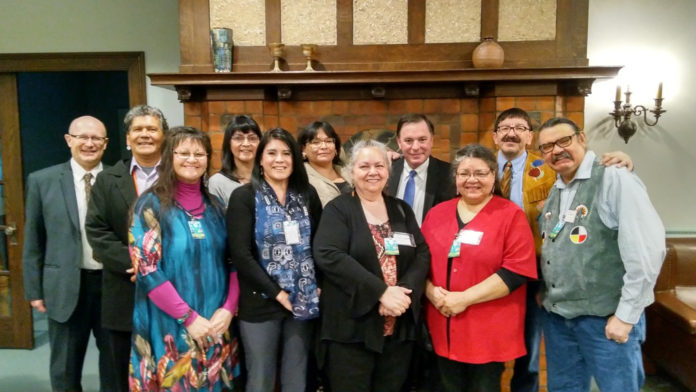
Robert Doucette had been waiting for years to hear two words come out of the premier’s mouth.
Monday, he finally got his wish.
Premier Scott Moe, in a special ceremony held at the Saskatchewan Legislature, made good on a promise made by Brad Wall and apologized to victims of the Sixties Scoop.
The promise was first made in 2015. Moe re-affirmed his commitment to that apology early last year at the leadership convention when he was chosen as the next premier of Saskatchewan.
“The Sixties Scoop refers to a period in Canadian history when Indigenous children were removed from their families and their communities by child welfare services,” Moe said in the historic apology
“Despite the good intentions of many foster and adoptive parents, too many of these children were caught between two worlds. They were stranded in a sense, with no knowledge of who they were, or where they came from. The consequences are still being felt by individuals and families to this day.
“On behalf of the Government of Saskatchewan . . . on behalf of the people of Saskatchewan . . . I stand before you today to apologize . . . to say sorry. We are sorry for the pain and sadness you experienced. We are sorry for the loss of culture and language.
“To all those who lost contact with their family, we are so sorry.”
For Doucette, who has long advocated for sixties scoop victims and was himself taken from his birth family, hearing those words marked a major milestone.
“I was very emotional today. I cried a bit and thought about my mushum and kokum, the ones I didn’t see when I was taken away and for the ones who couldn’t be there, my sister Corinne and other sixties scoop kids who have passed on already and weren’t here today,” he said.
“I got to hear the two words I wanted to hear from the premier.
“There was an acknowledgement of the harms that successive governments have committed against First Nations and Métis children and their families during the sixties scoop and I look at it this way. It’s a step forward, a beginning, and now the real hard work begins. That’s what I’m looking forward to.”
During his apology, Moe spoke about the stories that were told during a series of sharing circles held to help inform the province about its apology. He thanked people for telling their stories and for being willing to work with the provincial government on a way forward.
Moe also touted recent efforts undertaken to change the way child welfare cases are handled in the province. He spoke of the 17 First Nations Child and Family services agencies to deliver culturally appropriate child welfare services in 60 First Nations communities, efforts to keep families and siblings together and strengthening of supports to maintain a connection to family and culture.
He also spoke about increased funding for adult basic education programs and the Saskatchewan Indian Institute of technologies, as well as funding for new treatment beds and expanded training for mental health councillors.
“Ladies and gentlemen, there is an earnest and concerted effort underway in Saskatchewan to support and uplift all those in need, including our friends and neighbours still dealing with the impact of the Sixties Scoop,” he said.
“I believe that today, progress is being made in many areas, but we know there is more work to do.”
Moe concluded by promising to continue to learn from and consult with Indigenous people to build a better Saskatchewan.
The apology contains no compensation. The government had previously said the apology would not include any financial compensation.
The province is currently in the process of defending a class action brought by Doucette and others looking for financial compensation for sixties scoop survivors.
Still, like Moe, Doucette sees Monday’s apology as the next stop of a long journey.
“Today was a very good day. This is a step in the right direction, he said.
“I think some of the larger issues we have to address are increased resources for families. I’m hoping the premier and ministers will sit down with community-based organizations and actually work with them, with the families and those still being impacted by the institutions taking our kids away.
Doucette said he’s ready to get into the “nitty-gritty work” that needs to be done to make things better.
He acknowledged that the process won’t be quick or easy.
“You’re not going to change institutions that have been around for 112 years in one day. It’s simply not going to happen,” he said. “You try to do things in small, incremental steps, and you try to deal with the issues we’re all faced with today. That includes non-aboriginal people because they’re impacted by all of this too. We all need to pull together and do the right thing for this whole province.
“Will everyone get what they want to hear? No. Are we all healed? Absolutely not. But if none of us try to sit down, have a dialogue and really understand … and take that step forward to correct what’s going on, nothing happens.”

